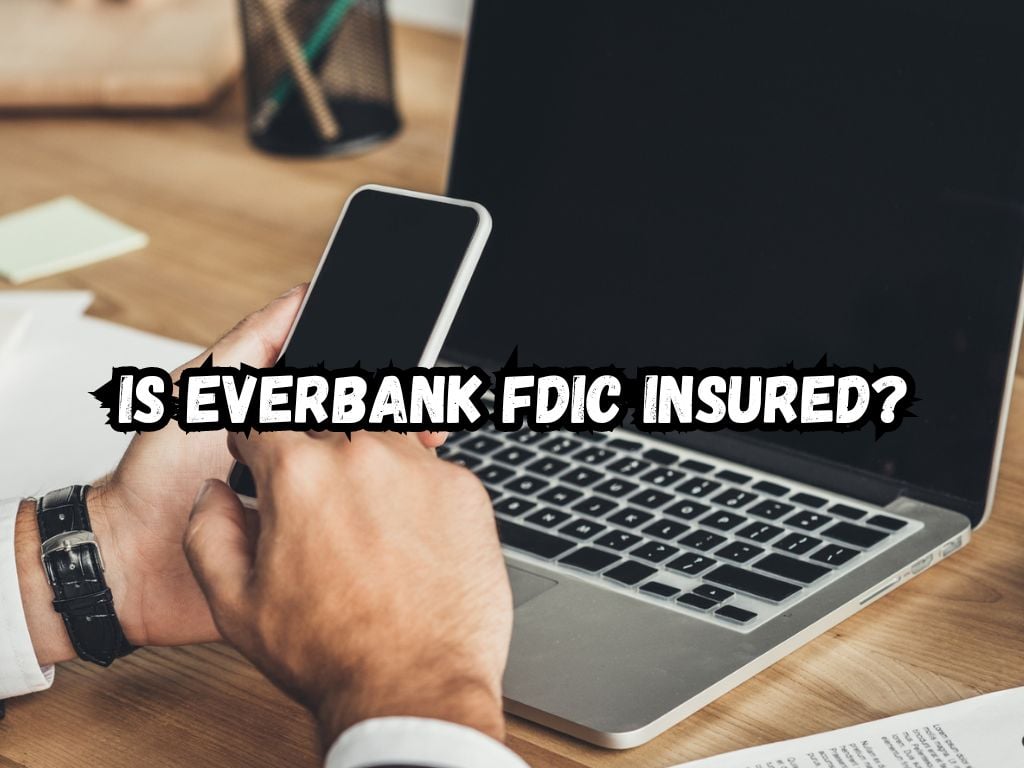When it comes to choosing a bank, one of the key concerns for depositors is the safety of their funds.
In the United States, the Federal Deposit Insurance Corporation (FDIC) plays a crucial role in providing account holders with peace of mind by insuring their deposits. So, is EverBank FDIC insured?
In this article, we will explore whether EverBank is FDIC insured and how the FDIC insurance protects your funds.
We will also discuss the benefits of FDIC insurance and delve into the broader topic of account security with EverBank.
What is FDIC Insurance?
FDIC insurance is a government program that protects depositors’ funds in the event of a bank failure.
The Federal Deposit Insurance Corporation (FDIC) is an independent agency of the United States government that was created in 1933 in response to the widespread bank failures during the Great Depression.
The primary purpose of FDIC insurance is to maintain confidence and stability in the banking system.
FDIC insurance offers depositors substantial protection, giving them confidence in the safety of their funds. If a bank fails, depositors are assured of getting their money back, up to the FDIC insurance coverage limits.
This coverage is provided at no additional cost to the account holders and is automatically included.

Is EverBank FDIC Insured?
Yes, EverBank is FDIC insured. As of writing this article, EverBank is a member of the FDIC, which means that its deposits are insured by the FDIC up to the maximum allowed by law.
The FDIC insures deposits in different ownership categories, including individual accounts, joint accounts, revocable trust accounts, and certain retirement accounts, up to $250,000 per depositor, per ownership category.
EverBank provides its customers with the assurance that their deposits are safe and protected. It is important to note that FDIC insurance only covers deposit accounts, such as checking and savings accounts, money market deposit accounts, and certificates of deposit (CDs).
Investments in mutual funds, stocks, bonds, and annuities are not covered by FDIC insurance.
FDIC Insurance Coverage Limits
Understanding the FDIC insurance coverage limits is essential to grasp the extent of the protection provided. The standard insurance coverage limit is $250,000 per depositor, per ownership category, at each FDIC-insured bank.
This means that if you have multiple accounts in different ownership categories, such as an individual account, a joint account, and a retirement account, each account can be insured up to the coverage limit.
For example, if you have a checking account with $200,000, a savings account with $150,000, and a joint account with your spouse with $300,000 in deposits at EverBank, these accounts would be insured separately.
You would be insured for $250,000 for your checking, savings, and half the joint account, totaling $500,000. Your spouse would be insured for all of his or her $150,000 share of the joint account. t’s important to note that FDIC coverage limits are subject to change, so it’s advisable to stay informed about any updates or changes to ensure your funds are adequately protected.
Benefits and Limitations of FDIC Insurance
FDIC insurance offers several benefits to account holders. First and foremost, it provides peace of mind by guaranteeing the safety of your deposits.
Whether you have a modest amount in your account or a substantial sum, knowing that your funds are insured up to the coverage limit can be a tremendous relief.
Furthermore, FDIC insurance extends beyond traditional banks to cover online banks and credit unions that are FDIC members. This opens up a wider range of options for depositors, allowing them to choose the institution that best fits their needs while still enjoying the same level of protection.
Despite its numerous benefits, it’s essential to understand the limitations and exclusions of FDIC coverage.
As mentioned before, FDIC insurance only covers deposit accounts held at FDIC-insured banks. Investments in stocks, bonds, mutual funds, annuities, and other similar products are not covered. It’s crucial to differentiate between funds held in deposit accounts and those invested in non-deposit products.
Another key limitation to consider is the coverage limit itself. While the coverage limit of $250,000 per depositor, per ownership category offers substantial protection for most individuals, it may be insufficient for those with larger account balances.
High-net-worth individuals may need to explore alternative strategies, such as diversifying funds across multiple FDIC-insured institutions or utilizing other protections, to safeguard their assets.

Additional Account Security Measures Offered by EverBank
While FDIC insurance provides a solid foundation for account security, EverBank also implements additional measures to protect customer funds.
EverBank prioritizes data encryption protocols to safeguard sensitive information and prevent unauthorized access. Robust fraud prevention measures, such as transaction monitoring and identity verification, are in place to detect and prevent fraudulent activities.
Additionally, EverBank offers dedicated customer support to assist account holders with any security concerns or inquiries they may have.
The combination of FDIC insurance and these supplementary security measures ensures that EverBank account holders can feel confident in the safety of their deposits.
Frequently Asked Questions
What happens if EverBank fails?
In the unlikely event that EverBank fails, the FDIC steps in to protect depositors. The FDIC would either arrange for the accounts to be transferred to another institution or initiate the process of refunding depositors up to the coverage limit.
Are all EverBank accounts FDIC insured?
Yes, all EverBank deposit accounts are FDIC insured up to the maximum allowed by law. This includes checking accounts, savings accounts, money market deposit accounts, and certificates of deposit.
Conclusion
EverBank is FDIC insured, providing account holders with the assurance that their deposits are protected up to the maximum allowed by law. FDIC insurance plays a vital role in maintaining stability and confidence in the banking system.
By understanding the coverage limits and limitations of FDIC insurance, account holders can make informed decisions and effectively protect their funds.
When selecting a bank, it’s important to consider the overall security measures in place alongside FDIC insurance.
EverBank’s commitment to account security, including encryption protocols, fraud prevention, and dedicated customer support, further enhances the protection of customer funds.
By choosing a bank that is both FDIC insured and prioritizes account security, depositors can enjoy peace of mind and focus on their financial goals.


 Tags:
Tags:










